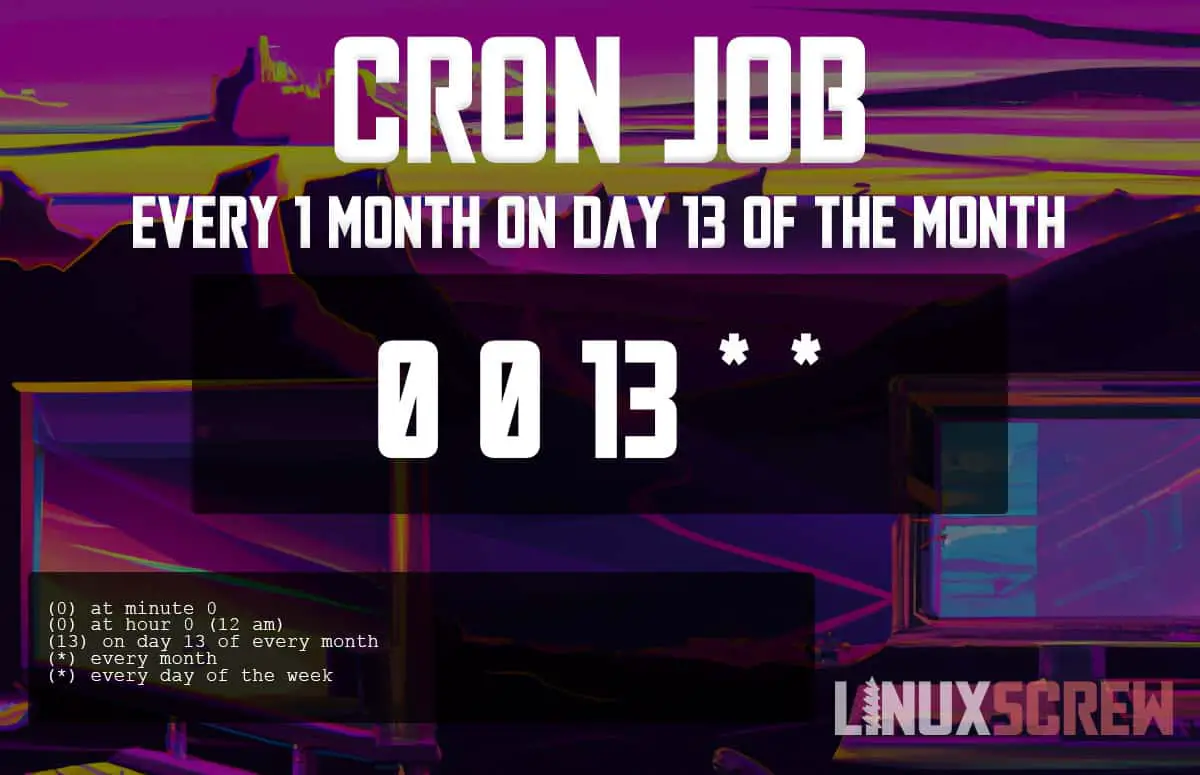This page will help you quickly and easily set up a cron job to run every 1 month on day 13 of the month.
The Cron Job/Crontab
To have your task run at this frequency, use the following cron:
0 0 13 * *
This cron command translates to the following (in Human-Readable format):
“Every 1 month on day 13 of the month.”
What is a Cron Job & Crontab?
A cron job is a time-based task that is set to run at specific intervals. This can be anything from running a script every hour to backing up a database every day. Cron jobs are typically used for maintenance or automation purposes.
Crontab is a file that contains commands and instructions for the cron daemon to execute. The crontab file is usually located in the /etc/cron directory. Each user on a system can have their own crontab file. The commands in the crontab files are executed by the cron daemon at the specified times.
Cron Fields
Every cron job uses five fields. Here is an explanation of what each field does in this cron, which runs “every 1 month on day 13 of the month“:
FUN FACT: Cron jobs can be set up to run at specific times, or they can be configured to run periodically (e.g., every hour)..
Use Cases
You might want to set up a crontab or cron job to run every 1 month on day 13 of the month for several reasons, including:
- Run a backup on the 13th of every month
- Update an analytics dashboard on the 13th of every month
- Generate a report on the 13th of every month
Similar Cron Jobs
You might also want to run a crontab:
- every 5 months
- every 3 months
- every 2 months
- every 4 months
- every 5 months on day 20 of the month
- every 3 months on day 7 of the month
- every 4 months on day 29 of the month
FUN FACT: You can use cron to schedule just about anything!.
Wrapping Up
In this article, you learned how to set up a cron job that runs every 1 month on day 13 of the month. Please share this page with friends and colleagues if you find it useful.
If you have any questions, please don’t hesitate to comment below.
If you are looking for cron jobs that run at certain minutes, hours, days, weekdays, or months, or if you are looking for miscellaneous cron jobs, then check out our relevant sections, or visit our cron job cheat sheet for a list of hundreds of popular cron jobs.

